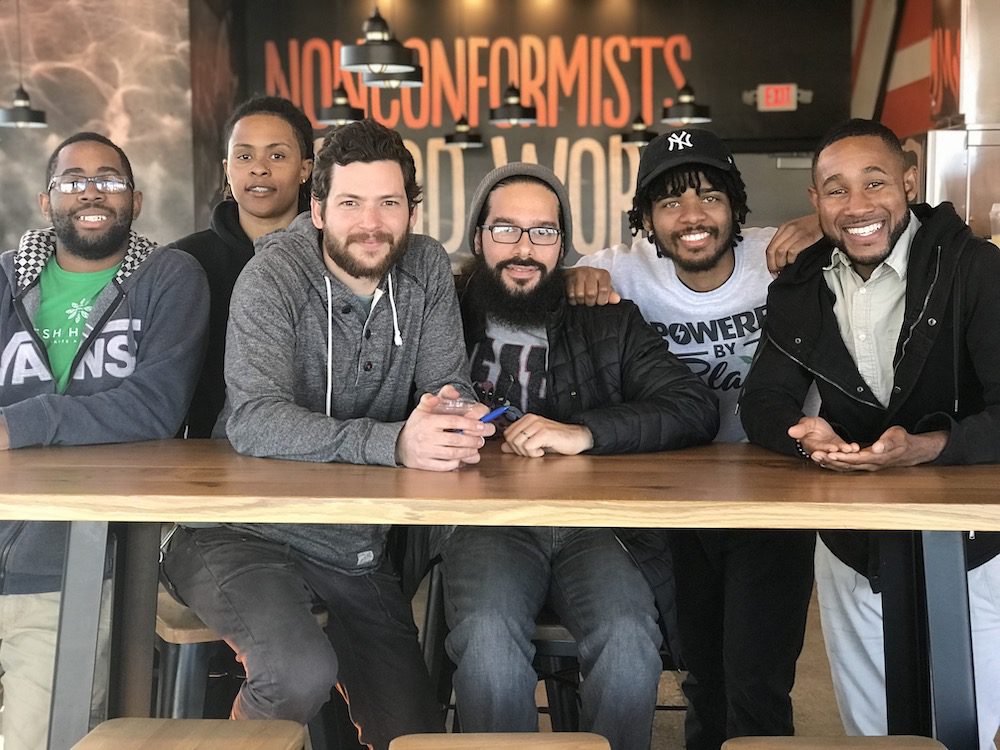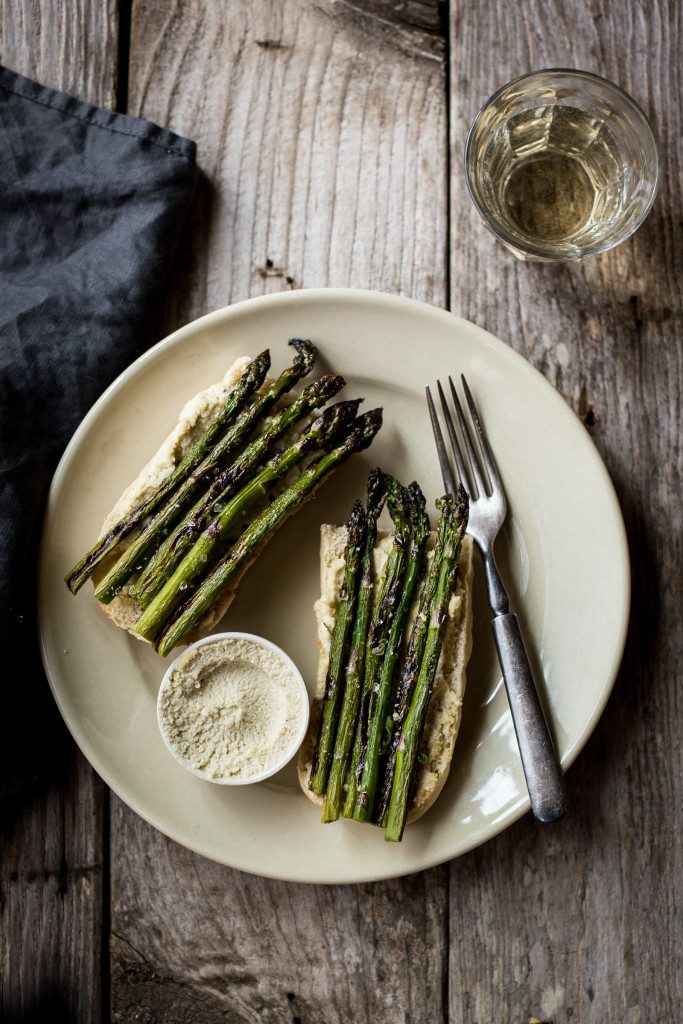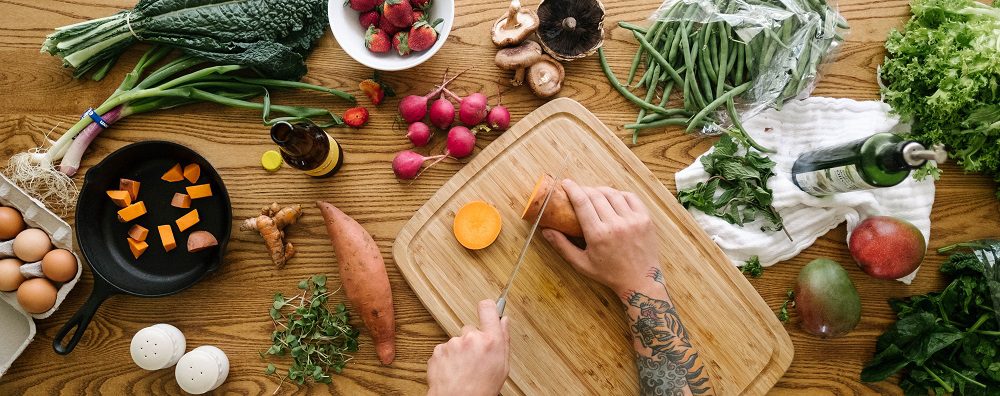While it may seem like vegetables magically appear in a basket on your doorstep week after week, the behind-the-scenes process can actually prove to be quite a challenge. At the center of this daily logistical dance is Thomas Belcher, Fresh Harvest’s one and only plant-based fleet manager. As a NYC transplant of Puerto Rican heritage, Thomas is one of the most interesting people around the office. I cornered him for a quick interview to learn more about the man behind the trucks and to better understand his ever evolving relationship with food.
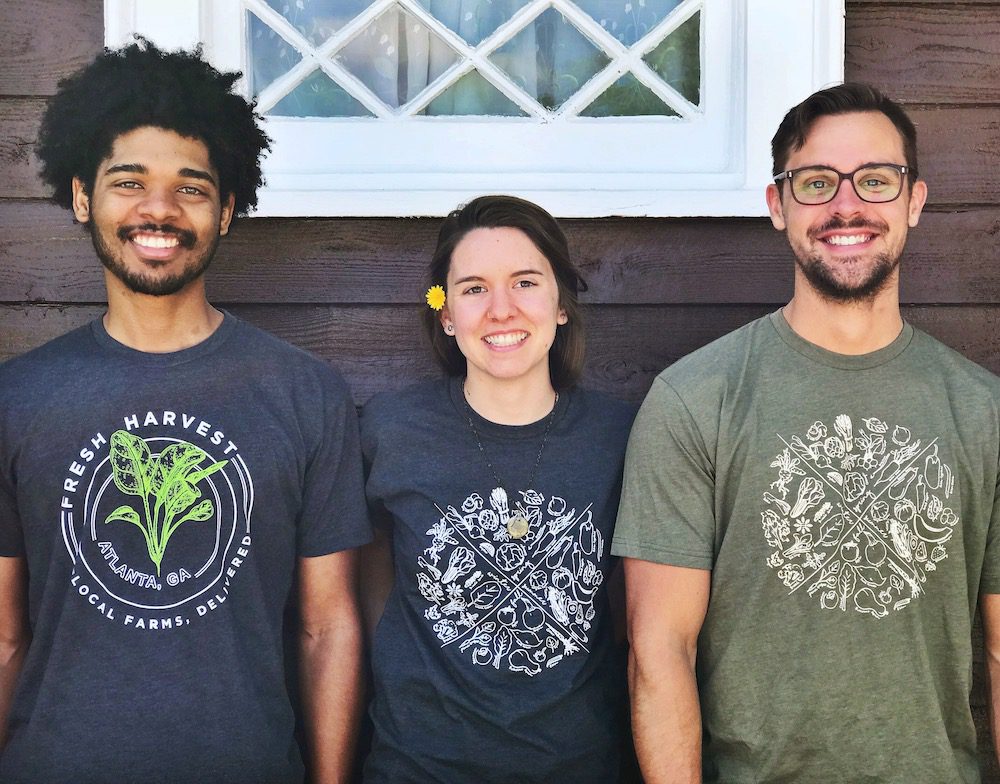
Thomas: I was born and raised the oldest of seven in Queens, New York in a packed house of about nine people on average. That’s how a lot of people tend to live in New York: with relatives like your mother, father, grandparents aunts and uncles. It definitely created a family intimacy that we share now that we’re older. But it was a little claustrophobic.
Joe: What was food like in your family growing up in New York?
T: My grandmother is Puerto Rican, so food culture is very important especially in New York. White rice was the base of almost every dish every day of the week. One night was rice and baked chicken, another night was rice and pork chops and another night was rice and a pork roast. My culture definitely involved a lot of pork and a lot of foods that were more traditional for holidays like pastelillos (similar to empanadas). Food has always been a pleasure thing for me. It was about what tasted good and was rarely about what was good for me.
J: Who was the cook of the family?
T: My grandmother. She cooked every day. She has always been our safety net and umbrella, and still is to this day. She was born in Puerto Rico and came to the US at age three and had to raise her siblings because her mom was always working. They lived in the projects in Brooklyn and she assumed the matriarch role since very early in her life, even as a young child.
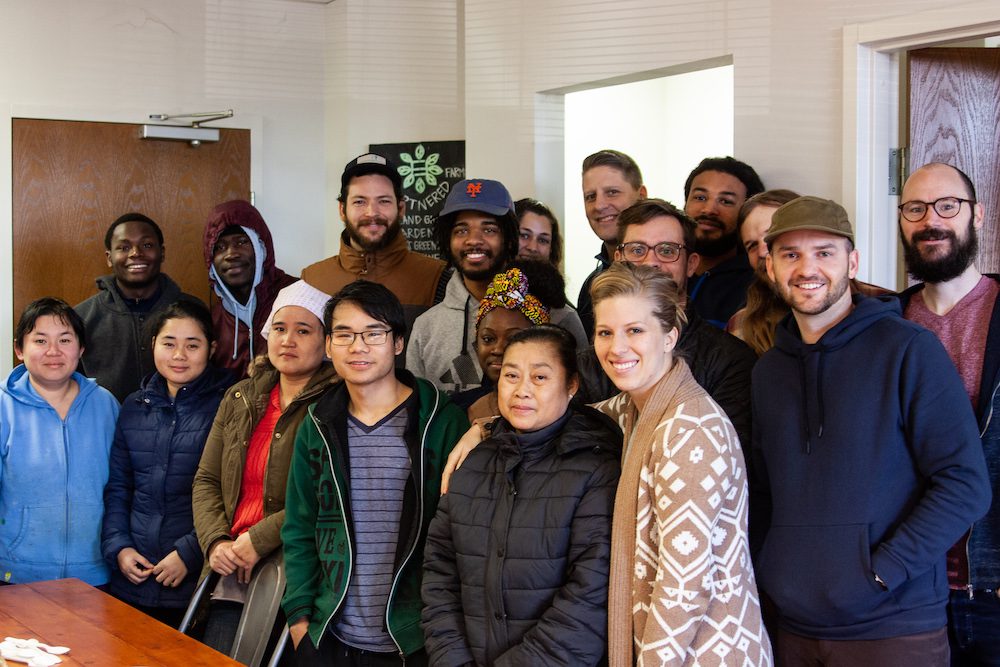
J: What was it like moving from New York to Georgia?
T: I was 15 when I moved to Lawrenceville. All of a sudden I had a backyard and all this land and I could walk outside. It was also a huge culture shock in the way people interacted with each other. Also, the compassion was shown in different ways there. In the south it’s shown through words and people go out of their way to make sure people notice that they’re being compassionate. In New York, if you have food on your plate, that’s how you know you’re loved.
J: What sparked the change in your food choices?
T: I got married pretty young and it wasn’t until I started my family that those thoughts started to come up. My wife and I started to notice that we had been blind to the health issues in our extended families. A lot of those issues came back to their diets and what they’d been eating since childhood. So we started looking at family medical history and noticed diabetes and high blood pressure and all kinds of stuff.
J: How did your food journey progress from this scary realization?
T: I started gathering info on the topic of food as quickly as I could. And I’m a total info junkie. It started with looking at labels, something you never are taught to do as a kid. For most of it, I didn’t even know what the words on the back of a container meant. But I started to familiarize myself with what I was seeing over and over. I might see a preservative pop up on four different items that I purchased and then I’d start to question what it is.
J: Any examples of something you removed from your diet?
T: We decided not to buy anything with MSG, which was a big deal because when I cut that out I didn’t get migraines any more. This transitioned to us cutting out preservatives and then processed sugars and ultimately being educated on how important it is to shop organic and eat mostly whole foods. I also realized that any time I ate beef, which I loved, it would not digest well. Eliminating beef and pork made all the difference. So I went fully plant based and noticed that my body was operating at its best in my whole life.
J: Will you remain plant-based for life?
T: I’m considering what is the next level and thinking about adding meats back into my diet. I’m always open to change, no matter how radical it is. I know one thing for sure is that sourcing is still the number one priority when it comes to putting anything into my body. I’m still a label reader. I need to know if this company that’s called Nature’s Whatever is owned by Kraft and if the back of the packaging says “A Kraft Company.”
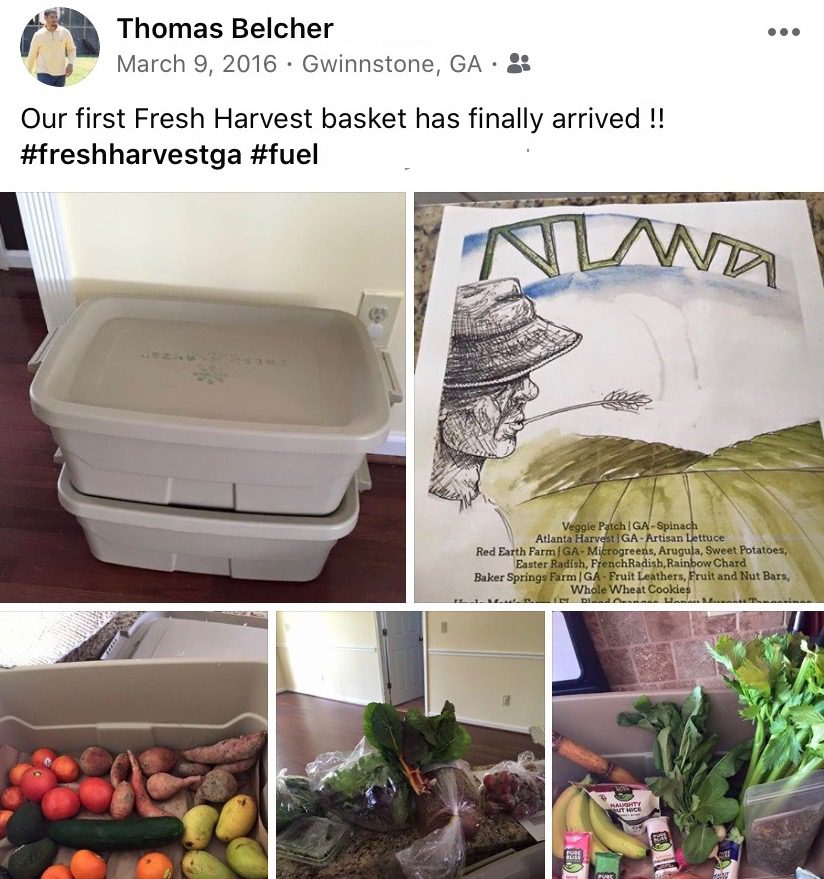
J: How did you know what food sources to trust?
T: We didn’t know too much about sourcing. It was impossible to prove what was actually in packaged foods because we were still buying from mass producers. I started driving almost an hour and a half to buy a month’s worth of meat from a trusted butcher. Then I got exposed to Fresh Harvest and my mind was blown. They started doing most of the research for us and finding all this quality stuff. We were able to relax a little bit and know the sourcing was transparent.
J: As a customer turned employee, do you feel a connection between your job and your personal food convictions?
T: The fact that we are building a local ethical food hub in Atlanta is something that’s thrown around the office constantly. So I’m often thinking of the role the fleet plays in that. My job is primarily thinking about customer experience and how deliveries and logistics relate to our customers being happy. So every improvement or change I make within the fleet team has Fresh Harvest customers in mind because we are the first and last representatives of FH that most customers see. The customers keep this food hub alive, so it’s definitely all connected!

J: Can you tell me about your own family a little?
T: I met my wife in our early 20’s through a cousin. We were at a family gathering. It was really a love at first sight kind of scenario. That was 2011. Fast forward a few years later and we had our little girl who is now four. No lookin’ back!
J: How does having a child affect your food choices?
T: It wasn’t too difficult for my wife and me because she never cared for meat and always loved fruits and veggies. We never introduced her to processed sugars or sodas because we knew the buck stopped on day one with all of those unhealthy generational eating habits that were passed down to us.
J: What do you tell a person who wants to make a dietary change but is not sure how to do it?
T: You’d be surprised how many people just eat because something is labeled as food and don’t necessarily pay attention to what it is. The first thing I’d say is to identify what you are consistently eating. A food journal can really help with this. Once you identify your base you can make some determinations of whether something needs to change and can zoom in a little further. If you eat chicken most of the time, what kind of chicken is it? Where is it coming from? Interrogate your food. Treat it like an ongoing experiment. The general rule is to start with the source.


